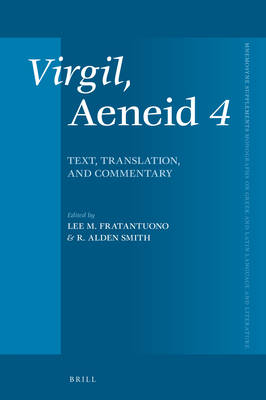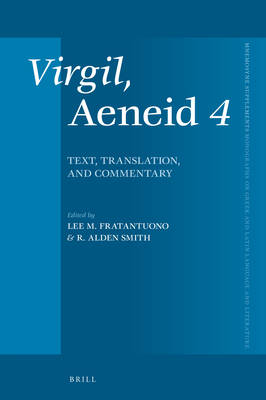
Bedankt voor het vertrouwen het afgelopen jaar! Om jou te bedanken bieden we GRATIS verzending (in België) aan op alles gedurende de hele maand januari.
- Afhalen na 1 uur in een winkel met voorraad
- Gratis thuislevering in België vanaf € 30
- Ruim aanbod met 7 miljoen producten
Bedankt voor het vertrouwen het afgelopen jaar! Om jou te bedanken bieden we GRATIS verzending (in België) aan op alles gedurende de hele maand januari.
- Afhalen na 1 uur in een winkel met voorraad
- Gratis thuislevering in België vanaf € 30
- Ruim aanbod met 7 miljoen producten
Zoeken
€ 427,45
+ 854 punten
Omschrijving
The fourth book of Virgil's Aeneid is the shortest of his epic, and yet it has had an inestimable influence. The tragedy of Dido is replete with allusions to the Medeas of Euripides, Apollonius, and Ennius, as well as to Catullus' Ariadne and the historical Cleopatra of Virgil's Augustan Age. The book has intratextual connections to the poet's own fourth Georgic (as he revisits the topic of apian regeneration and the loss of Eurydice), even as it confronts the reality of Rome's bloody history with Carthage. The present volume offers the first full-scale commentary on the book in over eighty years, together with a new critical text that reflects recent scholarship on significant difficulties.
Specificaties
Betrokkenen
- Auteur(s):
- Uitgeverij:
Inhoud
- Aantal bladzijden:
- 996
- Taal:
- Engels
- Reeks:
- Reeksnummer:
- nr. 462
Eigenschappen
- Productcode (EAN):
- 9789004521438
- Verschijningsdatum:
- 1/09/2022
- Uitvoering:
- Hardcover
- Formaat:
- Genaaid
- Afmetingen:
- 165 mm x 246 mm
- Gewicht:
- 1995 g

Alleen bij Standaard Boekhandel
+ 854 punten op je klantenkaart van Standaard Boekhandel
Beoordelingen
We publiceren alleen reviews die voldoen aan de voorwaarden voor reviews. Bekijk onze voorwaarden voor reviews.









